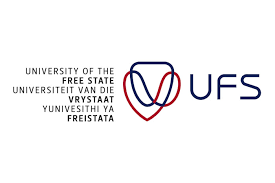University of the Free State: Socially developing communities or making them dependent
When we hear ‘social development’, we immediately think of the Department of Social Development. However, the social development approach in social work is much broader than the Department of Social Development and the common belief that social workers only remove children and hand out food parcels. “Social development is an approach to promoting human well-being (or social welfare). It includes policies and programmes that meet needs, protect and promote rights, manage and prevent social problems, build human capabilities, facilitate the optimal use of opportunities, promote the empowerment of people and social and economic inclusion.” The focus of this approach guides social workers to build communities’ capacity and assist them in becoming more resilient and self-reliant.
Caring for vulnerable communities
October is Social Development Month, during which the Department of Social Development annually celebrates the nation’s commitment to caring for vulnerable communities. The department’s campaign for this year, in collaboration with the National Development Agency and the South African Security Agency, focused on informing communities about the various grants they can access (Republic of South Africa [RSA]). During the 2022/23 budget speech, Minister Zulu reported that 99,6% of the Department of Social Development’s budget is allocated to cover more than 18 million social grant beneficiaries. It is shocking and sad that about 30% of South African citizens depend on social assistance.
With the social development approach, the focus will shift from providing more grants to skills development and job creation. Social work services would shift to more prevention and early intervention services. We need to initiate a whole systems approach that does not focus primarily on individuals (micro level) but begins with community development (macro level). If we start addressing social issues on a macro level through awareness and prevention programmes, it is believed that fewer services will be needed through individual and group work interventions.
Doing their best with limited resources and support
It is, however, impossible to render proper and adequate social work services if only 0,4% of the budget is left after the grants are paid. The Minister herself reported that 55 000 social workers are needed to meet the demand for appropriate essential social work services. However, about 9 000 qualified social workers are unemployed. The nation is still experiencing the additional psychosocial and economic trauma that COVID-19 has brought upon us.
During this Social Development Month, let us remember the definition of developmental social work as defined in the working document on social development, as “the practical and appropriate application of knowledge, skills and values to enhance the well-being of individuals, families, groups, organisations and communities in their social context. It also involves the implementation of research and the development and implementation of social policies that contribute to social justice and human development in a changing national and global context”. Social workers are trying their best to support vulnerable communities, but with limited resources and support it becomes very challenging. We want to salute the social workers who are fighting daily for social justice, human rights, empowerment, accountability, and the responsibility to assist vulnerable communities and to build and promote the social work profession.
While a large part of the community is dependent on grants, social workers are capable of building the capacity and resilience of vulnerable communities through the social development approach to ultimately improve their self-sufficiency and psychosocial-economic well-being. The fourth-year Social Work students had 34 community projects in various areas of the Mangaung Metropolitan Municipality during 2022, building the capacity and resilience of various vulnerable minority groups.

